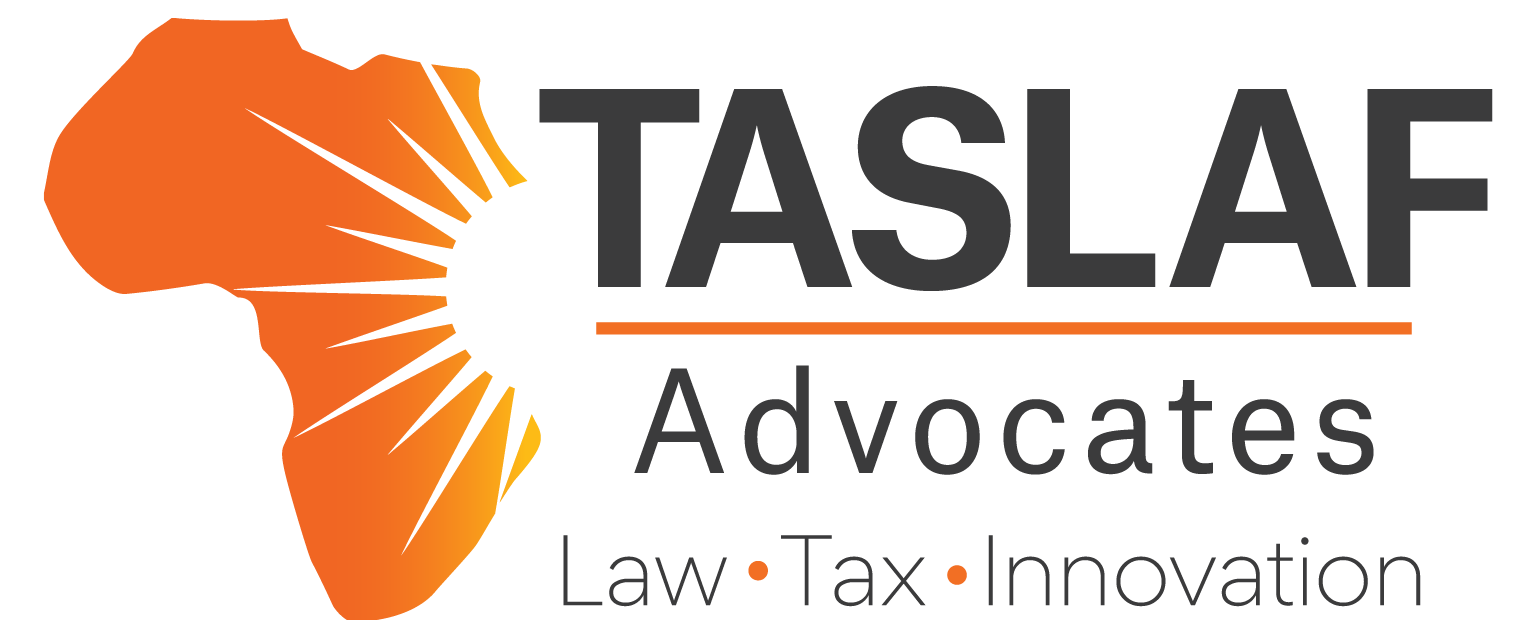Background:
On 30th March 2023, amendment bills to the Income Tax Act, Value Added Tax Act, Tax Procedures Code Act, and Excise Duty Act were gazetted. This is the first step before the bills are presented for debate in parliament, passed and signed into law.
The bills contain proposed amendments to the above-mentioned tax laws which are likely to have a significant impact on the economy, as well as on tax compliance for entities operating in Uganda or providing goods and services to customers in Uganda.
This alert, therefore, explores the draft bills, highlights the proposed changes sought to be introduced by them and provides insight into what this could mean for you or your business or organisation.
Executive Summary:
The amendment bills above propose the following changes in Uganda’s tax laws:
a. Replacement of Taxation of Capital Gains with Withholding Tax on Disposal of Assets:
Currently, a gain on the disposal of a business asset is taxed at 30% and is included in the business income of a taxpayer. In computing the amount of the gain subject to tax, a taxpayer is allowed to deduct the amount spent in purchasing the asset (with adjustments for inflation where applicable) as well as in improving and modifying it.
The proposed amendment seeks to replace the above treatment by imposing a final tax of 5% on the selling price of the asset, without an allowance for deductions, which tax will be collected by the purchaser who will be under a duty to deduct it from the purchasing price and remit it to Uganda Revenue Authority. Gains derived from the disposal of business assets will no longer be included in the business income of taxpayers when computing their gross income.
b. Taxation Of Dividends Of Collective Investment Schemes
Currently, income generated from collective investment schemes that are distributed to its participants is exempt from tax under Section 21(1)(t) of the Income Tax Act.
The proposed amendment seeks to impose a tax on profits from collective investment schemes (being the difference between the contribution made to, and payments received from the scheme). Partici- pants of a collective investment scheme that derive profits from their investment will now have that income included in gross income as part of their Property Income.
Where a taxpayer makes contributions to a scheme over UGX 100,000,000, they will now be required to file a tax return in respect of this income. The tax on the profits is to be withheld by the adminis- trators of the scheme and remitted to the Uganda Revenue Authority.
c. Express provision for taxation of electronic/digital services
Digital services include online advertising services, cloud computing services, online gaming ser- vices, and data warehousing.
The proposed amendments explicitly provide for the taxation of income from these services at a rate of 5% as well as for VAT on these transactions.
d. Waiver Of Penalties And Interest On Unpaid Tax
The proposed amendments aim at encouraging payment of outstanding tax. In this respect, it is pro- vided that taxpayers who have tax liabilities as at 30th June 2023 will have interest and penalties on these taxes waived if they pay the outstanding principal tax by 31st December 2023.
e. Removal of input VAT credits on importation of services
Under the current VAT regime, a taxpayer was prevented from claiming an input VAT credit for VAT incurred under an import of services, such as engaging a foreign services contractor by virtue of the fact such an input credit was not specifically provided for in the VAT Act (except for those engaged in the oil and gas and business processing sectors).
The proposed amendment seeks to provide clarity and expand the scope of transactions that, while subject to VAT, will not grant input credit to a taxable person. These are proposed to include final consumers, as well as persons and public entities that are eligible for VAT registration but have not done so.
f. Removal of interest recognition limits for loans from micro-finance deposit taking insti- tution and/or tier 4 micro- finance institutions
Currently, taxpayers who obtain credit facilities from micro-finance deposit-taking institutions and/ or tier 4 micro-finance institutions can only deduct a maximum of the amount equivalent to 30% of Profit before tax as interest on these loans in a year of income.
Under the proposed amendment, taxpayers who obtain credit facilities from micro-finance deposit-tak- ing institutions and/or tier 4 micro-finance institutions will now be allowed to deduct the entire interest on these loans as a business expense and not only the amount equivalent to 30% of profit before tax.
g. Removal Of Initial Allowance And Industrial Building Initial Allowance
Presently, a taxpayer is allowed to deduct 50% of the cost of an asset (albeit not all assets) that they put in use in a fifty kilometres radius outside Kampala (such as a plant and machinery) from their revenue, thereby reducing the amount of money subject to tax. Further, when a taxpayer places an industrial building in use for the first time, they are allowed to deduct 20% of the cost of the asset from their revenue, thereby reducing the amount of money subject to tax.
The proposed amendment seeks to remove these two tax incentives.
h. Capping Of Interest Accumulation On Unpaid Taxes
Where a taxpayer has unpaid tax (whether principal tax or penal tax), interest will continue to accu- mulate in perpetuity until the entire amount of tax (including interest) is paid off.
The proposed amendment seeks to cap the extent to which this interest can accumulate by providing that the taxpayer will not be liable to suffer interest that exceeds the quantum of principal and penal tax.
i. Limit on Carry Forward Losses
A taxpayer has no restrictions on carrying forward of losses from one year to another. However, the proposed amendment seeks to change this. The Income Tax Amendment Bill Amendment bill provides that if there is a carrying forward of losses at the end of five years of income, the taxpayer can only carry forward 50% of the loss in the 5th year of income to the following year of income.
j. Offsetting VAT tax credits with taxpayer liabilities under different heads of tax
Currently, where a taxpayer has a VAT credit exceeding UGX 5,000,000, the commissioner cannot offset it against other tax liabilities present or future without the taxpayer’s consent. The proposed amendment seeks to empower the commissioner to offset VAT credits to a customer exceeding UGX 5,000,000 against any other tax liabilities present or future (including liabilities under other taxes) without the requirement for consent.
A detailed digest of the proposed amendments to Uganda’s tax laws, along with our comments on these proposed modifications are presented below.
PROPOSED AMENDMENTS TO THE INCOME TAX ACT
ITEM Capital Gains Tax Amendment of Section 18(1)(a) and repeal of Section 18(4), Repeal of Section 22(2)(b), Repeal of Section 49,50 and 54 Introduction of Section 118B. 122(aba) |
CURRENT LAW Capital Gains from the disposal of a business asset are taxable as part of a taxpayer’s business income. A 30% rate of tax is imposed on a gain derived from the disposal of a capital asset. A loss from a transaction of similar nature is allowed as a deduction when computing chargeable income. The law allows a taxpayer to deduct the cost of the asset and the cost of improvements, modifications or repairs, thereby only charging tax on the difference between the revenue received and the cost of the asset (including the cost of repairs, improvements and modifications) PROPOSED AMENDMENT This income will now be taxed by withholding 5% of the sale price of the asset and this will be a final tax. This means that, for instance, if an asset is purchased for UGX 100,000,000. The purchaser will pay UGX 95,000,000 and pay UGX 5,000,000 to Uganda Revenue Authority as tax on behalf of the vendor. The purchaser will not be required to include the proceeds from the disposal in their income tax return. |
Transfer of assets in the following circumstances will, however, not attract a charge of tax.
transfer of assets between spouses;
a transfer of assets between a former spouse as part of a divorce settlement or bona fide separation agreement;
involuntary disposal of an asset to the extent to which the proceeds of the disposal are reinvested in an asset of a like kind within one year of the disposal;
the transmission of an asset forming the estate of the deceased taxpayer to a trustee or beneficiary;
or
e. the sale of the investment interest of a registered venture capital fund, if at least fifty per cent of the proceeds on sale is reinvested within the year of income.
SIGNIFICANCE
The proposed amendment would make the disposal of all capital assets, and not just business assets, taxable.
Further, there is a proposed overhaul of the previous regime of computing the revenue on the asset which is subject to tax. Under the proposed amendment, a taxpayer would be allowed no deduction for improvements, modifications or repairs of an asset.
In the same vein, losses incurred on the disposal of business assets are no longer allowable deductions when ascertaining the chargeable income of a taxpayer.
This means that a taxpayer will suffer a charge of tax even when they sell an asset at a loss.
The proposed amendment is likely to enhance the ability of the Uganda Revenue Authority to collect tax on disposals of capital assets as the use of a withholding mode of tax collection has proven to be more effective in the collection of tax in comparison to current methods.
Taxpayers who intend to dispose of capital assets (and especially those assets likely to be sold at a loss, or where there has been significant investment in maintaining or improving them) should explore selling them before 1st July 2023 when, if it passes, this amendment would come into force.
Amounts received in relation to the disposal of business assets will no longer be included in gross (business) income as they will now be subjected to a final tax on the transaction.
ITEM Income from the sale of share options. Repeal of Section 19(1)(h) |
CURRENT LAW Income from the sale of employee share options or rights is taxable as part of an employee’s income from employment. PROPOSED AMENDMENT Income from the disposal of a right or option under an employee share acquisition scheme will no longer be taxable. SIGNIFICANCE The proposed amendment is likely to aid Uganda’s MSMEs in talent retention as they will now have the option of issuing share rights or options to employees as an alternative or complementary mode of compensation of employees. This is expected to positively impact Uganda’s entrepreneurial ecosystem by presenting MSMEs with a viable alternative mode of remunerating employees as well as act as provide additional wealth accumulation by those in employment. If the amendment passes into law, MSMEs should explore using employer share acquisition rights or options as an alternative or complementary mode of remunerating employees. Employees will now be granted additional options when deciding how to exercise their share options without such decisions being complicated by income tax considerations. |
ITEM Taxation of profits from collective investment schemes Introduction of Section 20(ba), Amendment of Section 21(t), introduction of Section 118I, 122(aba) |
CURRENT LAW Income of collective investment schemes that is distributed to its participants is exempt from tax. PROPOSED AMENDMENT Dividends/profits from collective investment schemes will now be taxable by withholding as a final tax. Once tax is withheld, the income is not to be included in the gross income of the taxpayer. A person with contributions (i.e. deposits plus undistributed profits) in more than one investment scheme, the aggregate of which exceeds UGX 100,000,000 must file a tax return. Such a taxpayer would account for the income separately from their gross income in their return. For those with less than UGX 100,000,000 in contributions, their income will be taxed by withholding 5% of the profit from the scheme while for those with over UGX 100,000,000 in contributions, their income will be taxed by withholding 15% of the profit from the scheme. SIGNIFICANCE The proposed amendment will, if it passes, impose a tax on profits from collective investment schemes. While the income of this nature was previously exempt, this amendment brings clarification by identifying which income derived from such schemes is subject to tax. |
ITEM Interest capping Amendment of Section 25(3) |
CURRENT LAW Taxpayers who obtain credit facilities from micro-finance deposit-taking institutions and/ or tier 4 micro-finance institutions can only deduct a maximum of the amount equivalent to 30% of Profit before tax as interest on these loans. PROPOSED AMENDMENT Taxpayers who obtain credit facilities from micro-finance deposit-taking institutions and/or tier 4 micro-finance institutions will now be allowed to deduct the entire interest accruing for the year of income on these loans as a business expense and not only the amount equivalent to 30% of profit before tax. SIGNIFICANCE The proposed amendment is likely to make credit facilities from micro-finance deposit-taking institutions and/or tier 4 micro-finance institutions more attractive as interest on their loans is now fully deductible. If this bill passes into law, taxpayers should explore loans from micro-finance deposit- taking institutions and/or tier 4 micro-finance institutions as an alternative source of financing since their loans are now fully deductible. Credit from these institutions is often cheaper especially for MSMEs as the loans often require less security and have more friendly repayment terms. |
ITEM Allowance for depreciation |
CURRENT LAW The sale of an asset for a value beyond its net book value attracts tax as it is considered part of business income. The law caps the cost base of a road vehicle other than a commercial vehicle to UGX 60,000,000. A purchase of a vehicle above the above cap means that the person is treated as having purchased a non-depreciable asset and will therefore only be entitled to calculate depreciation on the UGX 60,000,000 no matter the amount for which the road vehicle is bought for. PROPOSED AMENDMENT The sale of an asset beyond its Net Book Value will no longer income included in Business income. Provisions for value capping of motor vehicles and appropriation of consideration for their sale will be repealed. SIGNIFICANCE If this bill passes into law, taxpayers with valuable but redundant assets whose cost has been fully depreciated in their books should explore the disposal of these assets since any income on their sale will now be taxed at 5% and not 30%. Taxpayers who plan to purchase motor vehicles for business other than commercial motor vehicles should wait until 1st July 2023 when, if this bill passes and comes into law, the purchase of such vehicles will enjoy a more favourable tax treatment. |
ITEM Initial Allowance removed Repeal of Section 27A Repeal of Section 29(1a) |
CURRENT LAW A taxpayer who places an asset (excluding goods and passenger transport vehicles, household appliances, office furniture, fixtures and fittings) into use for the first time outside a radius of fifty kilometres from the boundaries of Kampala is allowed a deduction for 50% of the cost base of the asset for the year of income [called “Initial allowance”]. A person who places a new industrial building in service for the first time during the year of income is allowed a deduction for that year of an amount equal to 20% of the cost base of the industrial building at the time it was placed in service [called “Industrial Building Initial Allowance”.] PROPOSED AMENDMENT A taxpayer will no longer be able to claim initial allowance on plant and machinery or industrial building initial allowance. SIGNIFICANCE Taxpayers planning on investing by placing assets outside of Kampala (such as machinery and buildings) should be aware that if this bill passes, they will not be able to enjoy the existing tax incentives any more. Taxpayers who were in the process of putting these assets into use should expedite the same to ensure that these assets are put in use before 1st July 2023 and therefore be able to take advantage of these incentives before they, if the amendment bill passes, be removed. |
ITEM Capping of carry forward losses. Introduction of Section 38(5a) |
| 11 |
ITEM Taxation of revenue from the disposal of industrial or intellectual property Introduction of Section 79(ja) |
CURRENT LAW Revenue from the disposal of industrial or intellectual property is taxable under the general provision providing for tax on the disposal of immovable property as a royalty. PROPOSED AMENDMENT The proposed amendment explicitly provides for the taxation of income arising from the disposal of industrial property or intellectual property used in Uganda. The disposal of the right or right of use of multimedia, recorded or transmitted and tangible moveable property will no longer give rise to a royalty. SIGNIFICANCE The provision clarifies income from industrial or intellectual property in Uganda is taxable, notwithstanding that the owner of such property is not a tax resident of Uganda. Taxpayers who dispose of or purchase industrial or intellectual property in Uganda should take note of this development and ensure that they are fully tax compliant on these transactions. |
ITEM Tax on digital services Introduction of Section 86A |
c. (c) services delivered through an online marketplace or intermediation platform, including an accommodation online marketplace, a vehicle hire online market place and any other transport online marketplace;
(d) digital content services, including accessing and
downloading of digital content;
(e) online gaming services;
(f) cloud computing services;
(g) data warehousing;
(h) services, other than those services in this subsection,
delivered through a social media platform or an internet search engine; and
(i) any other digital services as the Minister may prescribe by a statutory instrument made under the Act.
The rate of tax is 5%.
SIGNIFICANCE
The proposed amendment aims at explicitly imposing a tax on the provision of digital services in Uganda. This is perhaps due to the growth in the revenue generated by web- hosted online, video streaming, social media and e-commerce platforms based overseas derived from the provision of services ultimately rendered in Uganda.
Entities resident in Uganda that procure these services from these non-resident service providers (i.e. with the intent of having such services rendered in Uganda, e.g. to the Ugandan market base) should ensure that they account for tax on these transactions by withholding on these payments at 5%. Further, Ugandan customers obtaining digital services should ensure that they withhold tax on these transactions.
PROPOSED AMENDMENTS TO THE VAT ACT
ITEM Sale of goods by auction Introduction of Section 10(3) |
CURRENT LAW Where goods are sold by auction, the person supplying the goods to the auction house is deemed to be the person making the supply and is the one to account for VAT. PROPOSED AMENDMENT Under the proposed amendment, the auctioneer will now be the person identified as having made the supply and therefore be the person to account for VAT. SIGNIFICANCE If the proposed bill passes, taxpayers who intend to sell goods by auction should explore selling them by private treaty to avoid having to account for VAT when goods are transferred to auction institutions to be sold. Operators of auction institutions should take note that, if the amendment is passed, they will need to charge VAT on goods sold by auction (where those goods are not exempt) and account for the same to URA. |
ITEM Electronic/Digital Services Amendment of Section 16(2) |
| 14 |
Electronic services mean services supplied through an online or digital network by a supplier from a place of business outside Uganda to a recipient in Uganda including—
websites, web-hosting or remote maintenance of programs and equipment;
software and the updating of software;
images, text and information;
access to databases;
self-education packages;
music, films and games; including games of chance;
SIGNIFICANCE
The proposed amendment is intended at expressly providing for VAT on imported digital services.
Taxpayers importing digital services and who are VAT registered or are eligible for VAT registration should ensure that they withhold and remit VAT on these transactions.
Businesses providing digital services to Ugandan consumers who are not VAT registered or eligible for VAT registration should ensure that they pay VAT and file returns every three months.
ITEM Removal of input VAT credits on importation of services and membership of associations Introduction of Section 28(5)(d) and (e) |
CURRENT LAW Input credit for imported services is only allowed for services imported by an (oil and gas) contractor or licensee or a person providing business process outsourcing services. PROPOSED AMENDMENT The proposed amendment seeks to more explicitly identify and expand the scope of supplies that do not give rise to input credit for VAT on the importation of services and VAT on payment for entertainment made by a taxable person for membership of a person in a club, association or society of a sporting, social or recreational nature. The proposed amendment also seeks to remove input credit for VAT on the importation of services from a person who carries on business outside Uganda and who does not have a place of business in Uganda and includes electronic services referred to above as well as services related to immovable property in Uganda, television and radio broadcasting, transfer of intellectual property, and telecommunication. In addition, VAT chargeable on supplies from private or public entities eligible for registration that have not registered for VAT will not give rise to input credit. |
SIGNIFICANCE
The proposed amendment appears to be aimed at encouraging the consumption of services from businesses in Uganda.
If the amendment is passed, taxpayers should restrict the purchase of services from providers outside of Uganda and as far as possible use Ugandan businesses.
Ugandan service companies should explore partnerships with foreign service companies to leverage this favourable tax treatment of the supply of services by Ugandan companies.
The further restrictions on supplies from which a taxpayer can claim input credit will also enhance collections by the Uganda Revenue Authority.
ITEM General restriction on claiming of input VAT Credits Introduction of Section 28(6a) |
CURRENT LAW The input VAT in relation to a taxable supply or import of goods that is made partly for business use and partly for non-business use, the input credit allowed is in the proportion of sales made by the person that are taxable. PROPOSED AMENDMENT The proposed amendment narrows the scope of the circumstances under which a VAT input credit may be claimed. The proposed amendment requires that an input VAT credit can only be claimed where the purchase was by the business generating the taxable supply where there is output VAT. This would prevent business dealing in exempt supplies from claiming any input credit where VAT on a purchase has partly non-business use. SIGNIFICANCE The proposed amendment is likely to see a greater insistence by the Uganda Revenue Authority on a relationship between the purchases on which input VAT is claimed and the products of the business. For taxpayers with different businesses, Uganda Revenue Authority is likely to insist on the inputs for each business being booked separately and directly attributed to goods or services provided by that business. Taxpayers should be careful to ensure that each purchase on which input VAT is claimed is connected with the business of the taxpayer otherwise the claim for input VAT may be rejected. |
ITEM Filing of returns for VAT-registered persons importing goods or services Introduction of 38A(1b) |
CURRENT LAW A person whose business is outside of Uganda but who supplies goods or services in Uganda must file a VAT return every after three months. A taxpayer who imports goods and services in Uganda is under an obligation to account for VAT on the same by filing a return and paying VAT to Uganda Revenue Authority. Accordingly, there is a cross-cutting reporting obligation because the importer of the service or good and the seller of the service or goodwill both declare these transactions in their returns. PROPOSED AMENDMENT The proposed amendment removes the obligation on a business outside of Uganda to file returns in respect of transactions with VAT-registered or entities required to be VAT registered in Uganda. Accordingly, these businesses will only file returns with respect to transactions with persons in Uganda who are not VAT registered or liable to register for VAT. SIGNIFICANCE The proposed amendment aims at clarifying the obligations of taxpayers in the filing of returns. Taxpayers importing digital services and who are VAT registered or are eligible for VAT registration should ensure that they withhold and remit VAT on these transactions. Businesses providing digital services to Ugandan consumers who are not VAT registered or eligible for VAT registration should ensure that they pay VAT and file returns every three months. |
ITEM Offsetting VAT tax credits with taxpayer liabilities under different heads of tax. Amended Section 42(2) |
CURRENT LAW Where a taxpayer has input credit for a period that exceeds their VAT on outputs by less than UGX 5,000,000, Uganda Revenue Authority may offset this against other tax liabilities that the taxpayer may have in the future or across other heads of tax such as income tax or excise duty. However, if the tax credit is beyond UGX 5,000,000, Uganda Revenue Authority requires the taxpayer’s consent before doing this. PROPOSED AMENDMENT The proposed amendment seeks to empower Uganda Revenue Authority unilaterally offset tax credits of the taxpayer, no matter the amount, on future liabilities or other tax liabilities without the requirement for the consent of the taxpayer. SIGNIFICANCE If this amendment passes, more powers will be conferred on Uganda Revenue Authority to apply monies to be refunded to a taxpayer to be offset against their current or future tax liabilities. Taxpayers who have credit amounts outstanding with Uganda Revenue Authority should apply for refunds and ensure that they are processed by 1st July 2023. It must be noted that applications for refunds trigger an audit into the compliance status of the applicant. |
ITEM Filing of returns in US Dollars Introduction of Section 73(3) |
CURRENT LAW All returns are supposed to be filed with the amounts denominated in Uganda Shillings. PROPOSED AMENDMENT The proposed amendment seeks to enable the filing of tax returns in United States Dollars, and not only in Uganda Shillings. SIGNIFICANCE The proposed amendment purposes to make it easier for businesses outside Uganda which have an obligation to file returns and businesses which transact in US Dollars to do so. If the proposed amendment is passed, taxpayers who fall in either of the above categories should explore a migration to filing returns in dollars to avoid onerous conversations of each of their transactions into UGX before filing of their returns. |
PROPOSED AMENDMENTS TO THE TAX PROCEDURES CODE ACT
ITEM Introduction of the offence of authorized interference or tampering with digital tax stamp machines Introduction of Section 19b(6a) |
CURRENT LAW Altering or interference with digital tax stamp machines was previously not criminal. PROPOSED AMENDMENT The proposed amendment seeks to make it a criminal offence for a person to make an unauthorized interference or tamper with a digital tax stamps machine. The proposed sanction is a term of imprisonment not exceeding ten years and/or a fine not exceeding UGX 30,000,000. SIGNIFICANCE The proposed amendment aims to ensure compliance with laws regarding the affixing of tax stamps by criminalizing tampering with tax stamp machines. Taxpayers who advised to desist from tampering with tax stamp machines as this may soon be criminal. |
ITEM Capping of accumulation of interest Introduction of Section 39(4) |
CURRENT LAW Interest on unpaid principal or penal tax will continue to accumulate until the entire sum is paid. PROPOSED AMENDMENT The proposed amendment seeks to cap the accumulation of interest on unpaid principal or penal tax. Under the proposed amendment, interest payable under a tax law after 1st July 2017 shall be capped at the aggregate of the principal and penal tax. This means that interest cannot accumulate to exceed the total of the principal and penal tax payable. SIGNIFICANCE The proposed amendment is aimed at preventing the payment of unduly onerous interest amounts by taxpayers. If this amendment is passed, taxpayers should take initiative not to overpay interest on outstanding principal or penal tax. Further, taxpayers would also be advised to pay taxes due early to leverage this incentive. |
ITEM A waiver on penalties and interest on outstanding tax Introduction of Section 40D |
CURRENT LAW There is no waiver on penalties and interest on the outstanding tax. Such penalties and interest, like the principal tax, must be paid. PROPOSED AMENDMENT The proposed amendment introduces a waiver of penalties and interest for tax outstanding as at 30th June 2023 which is paid by 31st December 2023. This means that a taxpayer who pays tax outstanding by 31st December 2023, the said tax having accumulated before 30th June 2023, will only have to pay the principal tax owing but not penalties and interest. SIGNIFICANCE The proposed amendment purposes at incentivizing all taxpayers who have arrears of principal tax to pay them in order to avoid having to pay interest and penalties. If this amendment is passed, taxpayers should take advantage of this incentive and pay all outstanding taxes by 31st December 2023 in order to avoid having to pay penalties and interest on these sums. |
ITEM Bar on later production of the requested information. Introduction of Section 42(4) |
CURRENT LAW The commissioner is empowered to request for information from a taxpayer. A taxpayer who has not provided the information that was requested by the commissioner may nevertheless provide it in mediation or during the process of challenging a tax decision. PROPOSED AMENDMENT The amendment proposes to place a bar on the later production of the requested information. A taxpayer who fails to provide the information requested by the commissioner cannot produce that information at mediation or in objection to a tax decision. SIGNIFICANCE The amendment would mean that taxpayers who do not comply with information requests may find themselves unable to use that information to reverse tax decisions through the dispute resolution mechanisms available (other than in court). This underscores the importance of complying with information requests from the Uganda Revenue Authority. Taxpayers should ensure that they comply with information requests from Uganda Revenue Authority not least because the same is a legal obligation placed on them. |
ITEM Introduction of the offence of fixing and activating a tax stamp on wrong goods or wrong brand or volume of goods. Introduction of Section 62H |
CURRENT LAW Fixing and activating a tax stamp on the wrong goods or the wrong brand or volume of goods is not criminal. PROPOSED AMENDMENT The amendment proposes to introduce a crime of fixing and activating a tax stamp on the wrong goods or the wrong brand or volume of goods. Under this offence, a taxpayer who fixes and activates a tax stamp on a wrong good, brand or volume other than a good, brand or volume for that tax stamp commits an offence and is liable, on conviction, to a fine not exceeding UGX 10,000,000 or imprisonment not exceeding three years or both. SIGNIFICANCE The proposed amendment aims to ensure compliance with laws regarding the affixing of tax stamps by criminalizing activating of tax stamps on incorrect goods. Taxpayers should avoid participating in the above as this may soon be criminal. |
PROPOSED AMENDMENTS TO THE EXCISE DUTY ACT
ITEM Reduction of tax on opaque beer Amendment of item 2(d) of the 2nd Schedule |
CURRENT LAW There is an excise duty of 20% or Shs. 230 per litre, whichever is higher on opaque beer. PROPOSED AMENDMENT The proposed amendment seeks to revise the excise duty rate on opaque beer to 12% or Shs 150 per litre, whichever is higher. SIGNIFICANCE Manufacturers of opaque beer should take note of the proposed revision of the excise duty rate on opaque beer and, if the bill is passed, avoid overpaying of excise duty on opaque beer. |
ITEM Limiting of alcohol products used in the prevention of COVID-19 that are free from excise duty. Replacement of item 3 of the 2nd Schedule |
CURRENT LAW All Un-denatured spirits made from locally produced raw materials used in the production of disinfectants and sanitisers for the prevention of the spread of COVID-19 are free from excise duty. Undenatured spirits are spirits which are not diluted with anything that can make them unfit for human consumption. Spirits mixed with water are not undenatured. PROPOSED AMENDMENT Only Un-denatured spirits made from locally produced raw materials used in the production of disinfectants and sanitisers for the prevention of the spread of COVID-19 are exempt from excise duty whose alcohol content is more than 70% will be free from excise duty. SIGNIFICANCE Makers of un-denatured spirits that can be used to fight COVID-19 such as sanitiser should take advantage of the proposed requirement to exempt only those products that have at least 70% alcohol content. Such taxpayers should explore bringing their products within the qualifying range of at least 70% alcohol (if this wasn’t previously the case) in order to continue enjoying the exemption from excise duty. This amendment also seeks to protect local producers of hand sanitisers from competition with foreign-produced sanitisers. |
ITEM Expansion of excise duty exemption on construction materials for an investment Replacement of item 26 of the 2nd Schedule. |
CURRENT LAW Construction materials of a manufacturer, whose investment capital is, at least USD 50,000,000 or, in the case of any other manufacturer, who makes an additional investment equivalent to USD 50,000,000 are exempt from excise duty. PROPOSED AMENDMENT Construction materials of a manufacturer, whose investment capital is at least USD 35,000,000 in the case of a foreigner or USD 5,000,000 in the case of a citizen will now be exempt from excise duty. SIGNIFICANCE If the bill is passed, Manufactures intending to embark on construction projects where the investment amount meets the newly revised threshold should explore embarking on those investments after 1st July 2023, so as to take full advantage of the tax benefit proposed. |
ITEM Exemption of excise duty on incoming calls from Tanzania |
CURRENT LAW There is an excise duty on incoming international calls except for calls from the Republic of Kenya, the Republic of Rwanda and the Republic of South Sudan. The excise duty rate is USD 0.09 per minute. PROPOSED AMENDMENT Incoming calls from the United Republic Of Tanzania will now be exempt from excise duty. SIGNIFICANCE Taxpayers conducting business with entities or persons in Tanzania should take note of this development and leverage it if the proposed amendment is passed. |
Conclusion
The proposed amendments offer significant changes to Uganda’s tax regime with the capacity to sig- nificantly affect taxpayers and the market. Taxpayers should diligently follow the legislative processes involving the bills mentioned above in order to be able to find out whether the proposed amendments will be passed into law, and to make any necessary changes to their operations in good time, with the view of best positioning themselves to take advantage, or avoid any significant negative effects of the proposed amendments, should they pass.
TASLAF is in position to assist all entities to make sense of the amendments and what they mean in the specific context of an entity. If you would like to make a consultation, please make use of the contact details at the end of this article.
Disclaimer
No information contained in this alert should be construed as legal advice from TASLAF Advocates or the individual authors, nor is it intended to be a substitute for legal counsel on any subject matter. TASLAF accepts no liability for reliance on the information presented in this article.
For additional information in relation to this alert, please contact the following.
Our Legal and Regulatory Compliance Team:

Stephen Tumwesigye
Managing Partner
M: +256 (0) 774 334 908
E: stumwesigye@taslafadvocates.com

Priscilla Busulwa
Consultant – Senior Legal Associate
M: +256 (0) 786 031 346
E:pbusulwa@taslafadvocates.com

Joseph Byaruhanga
Tax Consultant
M: +256 (0) 773 345 599
E: info@taslafadvocates.com

Juliet Namirembe
Senior Tax Associate
E: jnamirembe@taslafadvocates.com
M: +256 703 392 531

Rushongoza Begumya
Legal Associate
M: +256 (0) 751 848 903
E: rbegumya@taslafadvocates.com

Elizabeth Akoth
Tax & Accounts Associate
M: +256 703 956 794
E: eakoth@taslafadvocates.com




